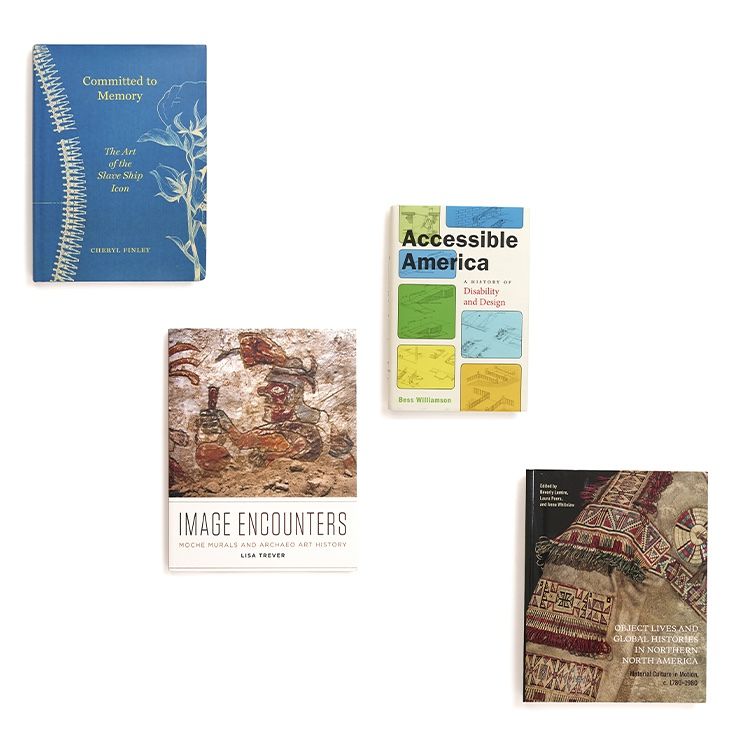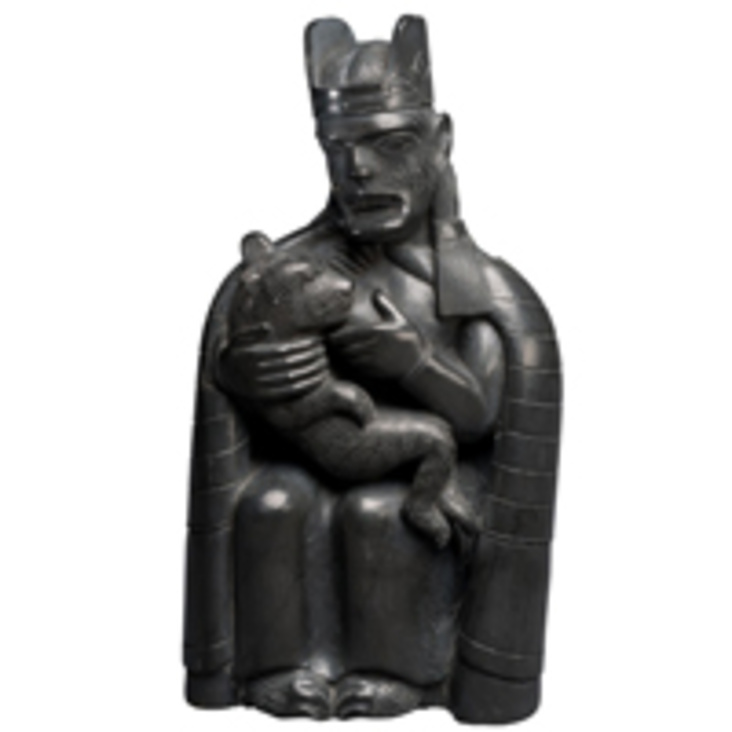Unknown maker, Haida
Argillite
Donated by Amelia White in 1961
American Museum of Natural History 16.1/2558
Argillite pipes (xahliidaa.u) were the most common Haida objects carved for the souvenir trade between 1820 and 1865. The genre of foreign ships and sailors was popular in Haida pipe imagery of the period, as indigenous artists depicted—perhaps caricatured—explorers and settlers. This panel pipe, meant for display rather than use, depicts seven men and women wearing highly detailed Euro-American fashions, seated on what appears to be a paddle steamer. Its whimsical dynamism gives the impression that the artist enjoyed representing the foreigners, while the non-Native origin of the pipe form itself may have given him further freedom from the confines of formline-style crest imagery. For their part, the sailors and tourists who bought these pipes were probably attracted to the exotic representations of themselves. This pipe was acquired by the AMNH in 1961, when anthropologists were finally recognizing the historical and aesthetic value of such “acculturated” First Nations objects. These had been often ignored by nineteenth-century ethnographers who privileged pre-contact Native material, which they regarded as “pure.”











